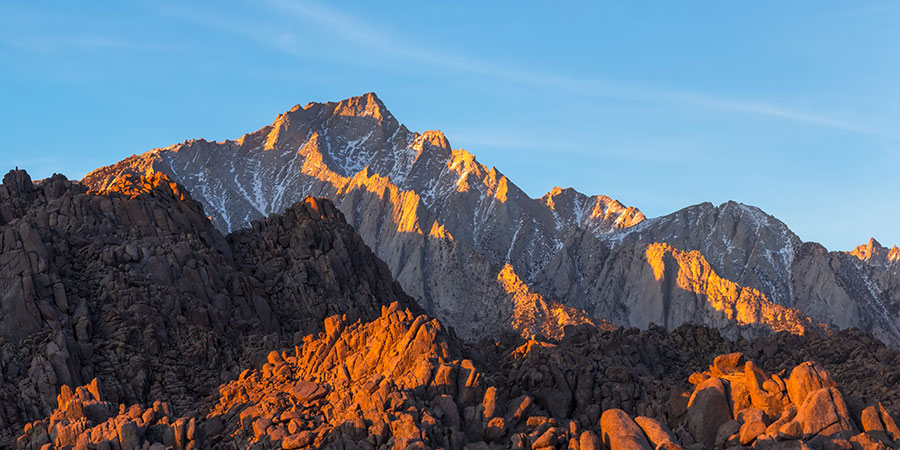It's a favourite question in pub quizzes. Who were the first people to colonise North America? The answer is not Portugal. It's not England, either. In fact, the first people to colonise North America from Europe were in fact the Scandinavian Norsemen in the first years of the 11th century. From their jumping off point in Greenland, ironically named so more people would want to live there despite the icy conditions, the industrious Norse would voyage over to what is now Canada, where they would collect timber, trade with the natives who they called Skraelings, and attempt a colony. The colony, thought to be at L'Anse aux Meadows in modern day Newfoundland, didn't really last long, possibly because the native people allegedly really disliked them.
But that's all we seem to hear about North America until Christopher Columbus' fateful voyage in 1492. Surely, for those nearly 500 years, North America remained untouched by European settlers? This is where it gets a bit grey and hazy, and this is where the hero of this blog, and also of much of Wales, Madoc ab Owain Gwynedd comes in.
It can be confirmed that King Owain Gwynedd did indeed live in Wales during the 12th century. It can also be confirmed that, after his death, he left a lot of sons to fight over his legacy and country. Madoc, the prince, was said not to really care that much about inheritance. He just wanted the fighting to end, and when it didn't, he decided to pack up his things, as well as around a hundred other people, and set sail for new lands that he could rule over.
In doing so, he found America. It differs as to where Madoc may have landed - in fact, it could be anywhere along the eastern coast, from Newfoundland all the way down to Alabama and beyond. In finding the land, a few elected to return to Wales, and bring more people over to share in the abundance of their newfound utopia.
Now, you may think that legend in itself is a wild ride, but not as wild as the ride the second load of settlers took. Apparently, they vastly miscalculated where they were supposed to land, and ended up in Mexico. It was after this voyage that Madoc didn't return, so what happens next is purely speculation (as opposed to the rest of the legend, which is of course firmly based in fact). It is said that these new settlers were the founders of civilisations. Civilisations such as the Aztecs and the Inca in fact - mighty empires which were bought down many hundreds of years after their inceptions. I don't want to appear sceptical (after all, the record keeping in the 1100s may not have been amazing) but aside from the delightful town of Trelew in Argentina, I'm doubtful that the Welsh colonised South America to such an extent. Still, it's a nice idea if you're a particularly proud Welshman.
But how did this story really matter anyway? It's a nice thought, of course, and a beautiful legend, but why is it important? Well, as in all things, the English used this legend to our advantage. As, by the time Columbus landed in America, the Kingdom of England had grown to include Wales, we therefore decided that America was rightfully ours. After all, it was one of our people that landed on it first, and one of our people that made a home there. Surprisingly enough, that actually worked. It is Madoc we have to thank for the English colonisation of America.
You, like me, and probably also the royal court of Portugal in the 15th century, may be incredibly sceptical about the validity of these claims and that's fair. After all, the majority of people have probably never heard about Madoc and his voyage to Wales, however, there was an event after the 'official' founding of America that should be noted. In 1608, English explorers came across the Monacan people in Virginia, and noticed that their language sounded awfully familiar. Almost like Welsh, in fact. Another strange coincidence is that the Monacan people were known by the Algonquian tribe as 'Mandoag', which looks incredibly similar to the other spelling of Madoc, 'Madog'. 'Welsh' tribes had often been known throughout the area, and according to the local native population, fortifications were built in Tennessee by white people calling themselves 'Welsh'.
There has been no official archaeological findings that Madoc ever set foot in America. There has only ever been folklore on both sides of the Atlantic. But it's a lovely thought, and something that members of the Daughters of the American Revolution put up a plaque about in Fort Morgan, Alabama: 'In memory of Prince Madoc, a Welsh explorer, who landed on the shores of Mobile Bay in 1170, and left behind with the Indians the Welsh language'.






